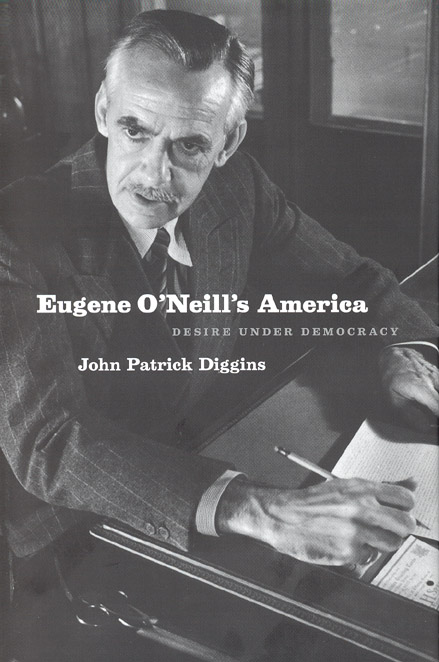Review: Diggins, Eugene O’Neill’s America
 John Patrick Diggins, author of Eugene O’Neill’s America: Desire under Democracy—a fascinating biography of the preeminent American playwright Eugene O’Neill—recently published an essay adapted from his book in the May 4 Chronicle of Higher Education. Commenting on the broad applicability of O’Neill’s plays to virtually all aspects of modern American life, Diggins writes:
John Patrick Diggins, author of Eugene O’Neill’s America: Desire under Democracy—a fascinating biography of the preeminent American playwright Eugene O’Neill—recently published an essay adapted from his book in the May 4 Chronicle of Higher Education. Commenting on the broad applicability of O’Neill’s plays to virtually all aspects of modern American life, Diggins writes:
O’Neill merits appreciation beyond the conventional categories of politics, the aesthetic criteria of dramaturgy, or the neurotic symptoms of psychology. Ideas pervade O’Neill’s plays, and not only ideas central to drama like irony, pathos, and tragedy.… He considered fortuitous contingencies and unintended consequences; sympathy and pity; falls caused by pride or jealousy; social and political philosophy involving class, religion, gender, race, marriage and family, power and freedom, and money and status.
And as a recent review in the Library Journal notes, it is just this appreciation of the diverse thematic content in O’Neill’s work that sets Diggins’s biography apart.
Biographers have published dozens of books on Eugene O’Neill over the last 50 years in an attempt to explain the complexities of America’s 20th-century ‘master playwright.’ What makes Diggins’s thoroughly researched effort particularly effective is his use of political, philosophical, social, psychological, and religious themes in his discussion of O’Neill’s life and plays in the context of a dynamic American society.… Diggins generously illustrates each theme with multiple examples from O’Neill’s plays and correspondences. Particularly insightful are his comparisons of O’Neill’s work with that of other great writers on the theme of American democracy, including Alexis de Tocqueville, Ralph Waldo Emerson, and Abraham Lincoln. This book offers the reader a lot to think about, regarding O’Neill’s life and work but also American society at large.
Painting a richly detailed portrait of the playwright’s life and work, Eugene O’Neill’s America offers a striking view of America’s greatest playwright—and an insightful picture of America itself.